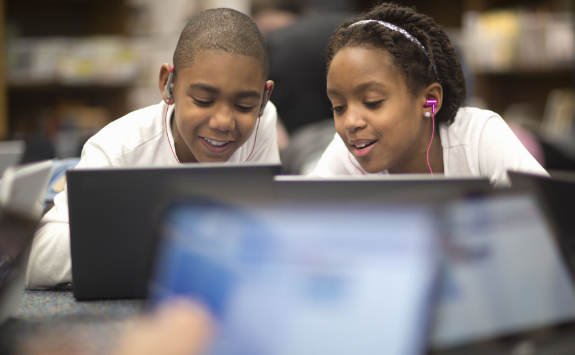What Is Social and Emotional Learning?

Social and emotional learning, or SEL, is a teaching and learning process to develop and acquire the skills, knowledge, and beliefs all individuals need to be successful in school, work, and life.
In their updated definition, the Collaborative for Academic, Social, and Emotional Learning (CASEL) defines SEL as “an integral part of education and human development. SEL is the process through which all young people and adults acquire and apply the knowledge, skills, and attitudes to develop healthy identities, manage emotions and achieve personal and collective goals, feel and show empathy for others, establish and maintain supportive relationships, and make responsible and caring decisions.”
At Harmony, we take this definition to heart and align with CASEL’s assertion that “SEL can help address various forms of inequity and empower young people and adults to co-create thriving schools and contribute to safe, healthy, and just communities.”
We recognize that SEL is both individual and community-driven, as children learn with and from their peers through collaborative activities and lessons with Harmony. In this way, inclusion and justice are central to SEL, as they are essential for fostering an environment where authentic relationships and a healthy sense of identity can thrive.
Through rigorous evaluation and development, Harmony strives to equip students, educators, and families with the knowledge and skills to think critically, build positive relationships, and seek inclusive solutions for their communities both in and out of school.
Everyday SEL in Action
We use social and emotional skills everyday, such as:

Resolve conflicts or disagreements

Form and strengthen relationships

Recognize and manage emotions

Empathize with others and support them

Collaborate and cooperate

Think critically and solve problems

Advocate for fairness and justice

Interact with people with different experiences, backgrounds, and opinions
Results That Last a Lifetime
Education leaders across the U.S. are seeing results as young people reach academic goals and develop a healthy sense of personal and social identity. Take a look at the long-term benefits of SEL for students and their communities.

Research* shows that students who engage in SEL programs like Harmony:
- Perform 13% better academically
- Experience fewer conduct problems and lower levels of distress
- Show improved social behaviors and attitudes
- Experience reduced symptoms of mental illness
- Hold more positive attitudes about themselves, other people, and school
- Are less likely to be involved in the juvenile justice system
*SOURCE: From the Collaborative for Academic, Social, and Emotional Learning (CASEL) review of research on the benefits of SEL.